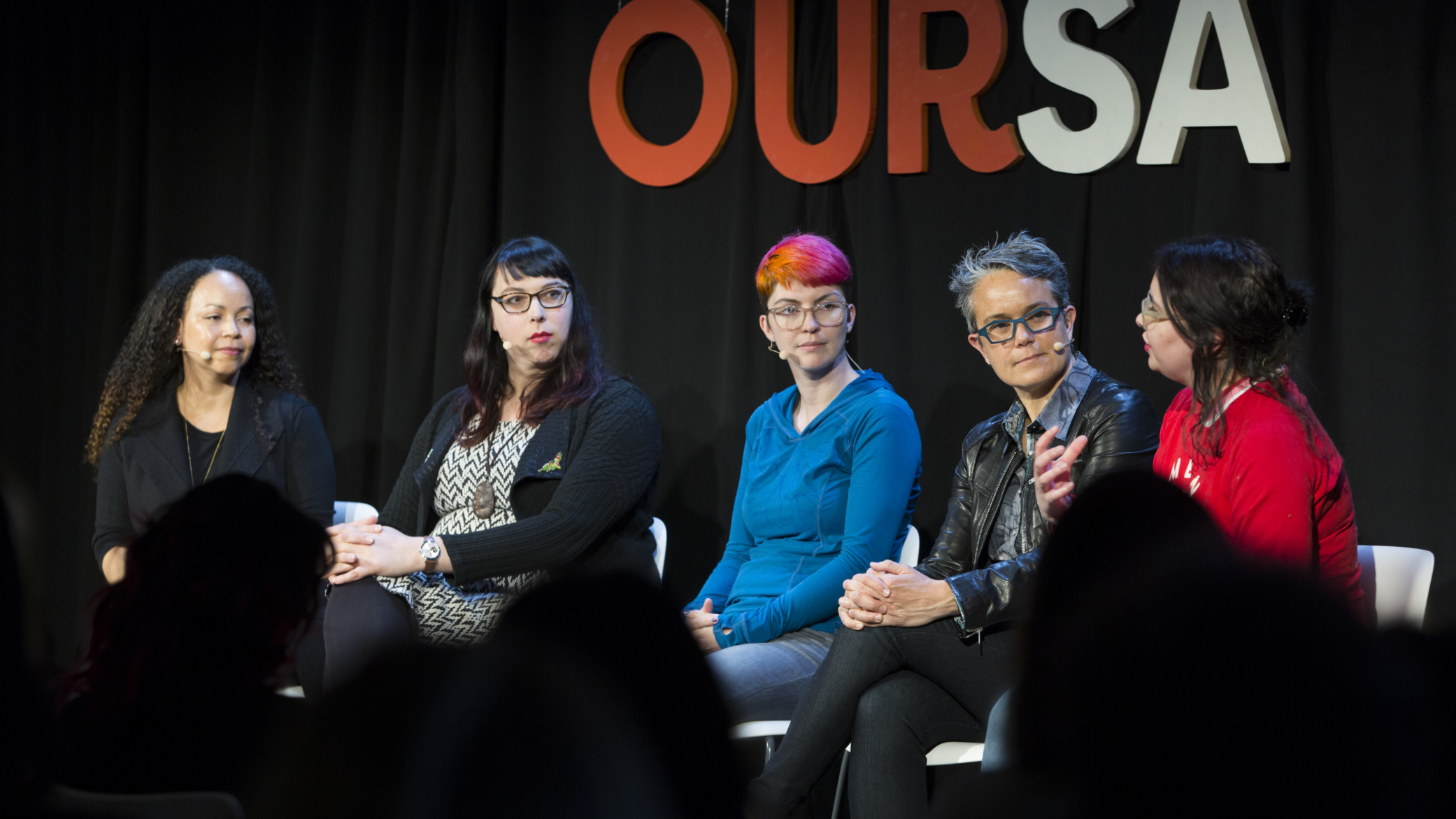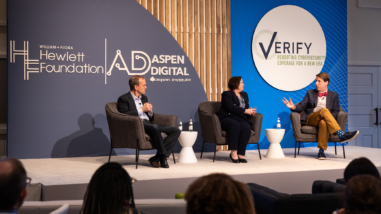
The Hewlett Foundation’s Cyber Initiative aims to build a field of institutions—staffed by experts diverse in background, experience, and perspective—that can develop solutions to pressing policy challenges. One challenge faced by this nascent field is its notorious lack of diversity, which is both reinforced by and reflected in events and news coverage worldwide. The recent furor over the annual RSA conference’s keynote lineup, where organizers initially selected men for 19 of the 20 featured speaking slots, is just the latest example. That chronic lack of representation led Brookings Institution Fellow and Lawfare Executive Editor Susan Hennessey to create a list of women in tech policy, first as a Lawfare post, and now in a website built with support from the Hewlett Foundation. We spoke to Susan about her reasons for starting the project and where she hopes to take it.
What do you hope to achieve with Sourcelist?
I want to stop hearing complaints about how hard it is to find women experts in this field!
I’m only half-joking when I say that. With Sourcelist, I think we can solve a problem by engaging with it in good faith. I often hear from people facing criticism for hosting all male panels or only quoting men in articles that they tried but just couldn’t find any women to speak on a topic. Or that they asked a woman and she couldn’t do it and so they gave up. I believe people care about diversity and I know it can be hard to identify all the relevant experts. I’ve assembled panels and conferences where it has been difficult to identify the right women, but I’ve seen that with enough effort, it’s not impossible. Sourcelist is an attempt to make it easier, to remove some of the barriers that stand in the way of putting good intentions into practice. This won’t fix the systemic root issues at play; but it is a concrete step this community can take to start being better.
You’re part of a generation of women working in national security, policy, and tech that seems willing to tackle issues of representation head-on, yet we still see far too many news articles with quotes exclusively from male experts—“marticles,” as described in a recent piece by Alexandra Bell and Kelsey Davenport at Poynter. Do you think it’s just a matter of journalists developing more diverse sources, is it something about how cyber and other national security-related topics are covered, or is it something in journalism more broadly that’s to blame?
I’ve learned that representation begets representation. Once you’re quoted in a few articles or sit on some panels, people know who you are and start reaching out. In fact, I think it’s common that a few women who’ve broken into the public awareness in this space are inundated with more invites to speak or requests for comments than they can accept. That’s why I think the issue here is at the on-ramp. I’ve seen the appetite for diversity firsthand. And I know the talent is out there. So why aren’t the two connecting?
Part of the answer lies in the incentives for journalists. Reporters are usually working on a deadline. They need someone credible and reliable and available quickly and so they’ll reach out to the people they already know. Because of the existing representation issues on cyber and national security topics, they are more likely to know a white male expert than anyone else, that person ends up quoted, his expertise and credentials are reinforced, and the cycle continues. Sourcelist makes it easier to find the right people from different groups. No, it doesn’t do all the work, but it helps with the first, hardest step of finding the name. I have faith that if we can inject more women into the bloodstream of the public conversation, things will grow exponentially from there and we’ll all be smarter for it.
As a woman who has achieved recognition for your expertise and a public platform for expressing your views, what advice do you have for people frustrated by the barriers they face in being seen as the experts they are?
Make yourself visible. When I was assembling the early list on Lawfare, people kept sending me names of these incredibly accomplished women. And I‘d Google them to try to find contact information and I couldn’t locate anything. Sometimes, I couldn’t even find the real name behind these really insightful Twitter handles. You’ve got to make yourself easy to find and easy to reach. You have to identify yourself as an expert. You are!
Issues of diversity, equity, and inclusion are increasingly salient for the Hewlett Foundation and many of our peer foundations. Support for efforts like Sourcelist is one way to respond, but where else do you think it’s important for funders to focus resources to best address issues of representation?
One of the most powerful things funders like the Hewlett Foundation can do is to push their grantees to think about these issues and articulate how they are addressing them in their work. Not only does this signal to prospective grantees that diversity is a priority, it forces people to consider how they are going to incorporate and encourage diversity in the design of projects themselves. Diversity isn’t just about window dressing; it’s about encouraging the smartest, fullest, and most informed research and debates. If funders are clear about how and why it matters, that is a powerful force for good.



